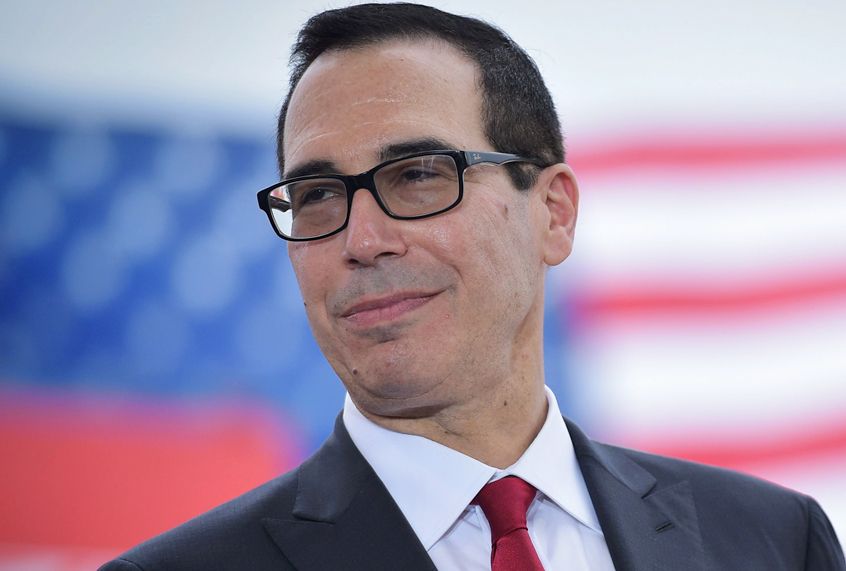The Trump administration is open to lifting sanctions on Russia’s Rusal, an aluminum company founded by billionaire Oleg Deripaska, a member of Vladimir Putin’s circle.
In an interview with CNN, Treasury Secretary Steve Mnuchin acknowledged that sanctions placed on Deripaska had crippled Rusal, which was not his intention.
“The objective was to impact the oligarchs, not to impact the hardworking people of Rusal as a result of the sanctions,” Mnuchin said.
The U.S. had enforced sanctions on Deripaska in response to Russia’s meddling in the 2016 election. The Treasury Department said Deripaska has been “investigated for money laundering, and has been accused of threatening the lives of business rivals, illegally wiretapping a government official, and taking part in extortion and racketeering.”
Eight companies, including Rusal, were impacted by the penalty. As a result, the global aluminum market went haywire, with the costs of aluminum surging by ten percent. Rusal’s shares dropped by 55 percent.
Since the sanctions, Rusal has tried to regain favor with the U.S. Treasury Department.
“The company has approached us on certain de-listing issues (from the Specially Designated Nationals List),” Mnuchin said in an interview with Reuters in São Paulo ahead of G20 finance meetings this weekend in Argentina.
“I’m not going to go into the exact specifics of what those proposals are and where we stand on them, but, yes, if we can find an acceptable solution, that is our objective,” Mnuchin said.
The U.S. Treasury’s posture towards Rusal differs greatly with other foreign companies. Last month, the Trump administration imposed tariffs on steel and aluminum imports from the European Union, Canada and Mexico, citing national security concerns. By targeting key allies, the U.S. reversed its longstanding economic strategy, according to Stephen Biddle, an adjunct senior fellow for defense policy at the Council on Foreign Relations.
“The U.S. grand strategy for multiple generations has been premised on the idea that we are going to collaborate with rich and powerful allies that our enemy doesn’t have and that this will advance American national security in a variety of ways,” Biddle told CNBC. “The allies in question are precisely the ones that we are now engaged in these trade disputes with.”
While President Trump is making it harder for foreign countries to enter the U.S. market, his administration is bending over backwards to ensure that a Russian company has access overseas. With the fallout of the Helsinki summit still haunting Trump, it’s fair to ask how this could be considered good politics.

